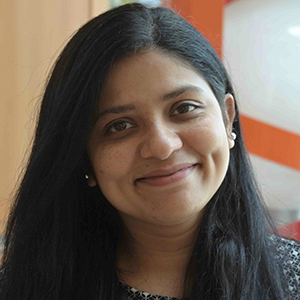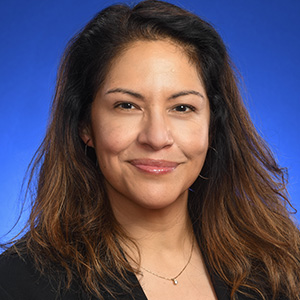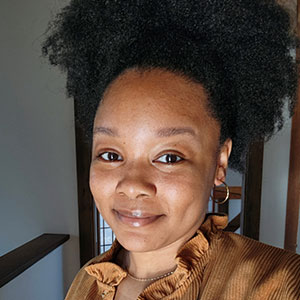Women’s History Month: Educating and inspiring generations
Just as every cell originates from a preexisting cell, every woman in STEM stands on the shoulders of those who came before her — mentors, educators and trailblazing scientists who paved the way. Through early classroom lessons and groundbreaking discoveries, female teachers and scientists have shaped and inspired generations of researchers. This Women’s History Month, we celebrate the educators, role models and scientists who ignite curiosity and empower the next wave of women in STEM.
Promoting scientific thinking through curiosity

Helen Pashley, former president of the Science Teachers Association of New York State, served as a curriculum developer with Putnam/Northern Westchester Boards of Cooperative Educational Services Elementary Science 21 program for 26 years. Through years of curriculum iteration, Pashley created lessons that helped students envision themselves as scientists.
“We finally moved away from teaching them the scientific method to teaching that science is all around us,” Pashley said. “Even a 5-year-old can be a scientist.”
Pashley’s curriculum work involved partnering with teachers in the classroom to develop methods of increasing student engagement. Students investigate patterns of cause and effect in phenomena they could see and hold in their hands, such as condensation on a glass of water.
“The kids would be bursting in through the door asking, ‘How’s our investigation coming? What are we planning to do today?’” Pashley said.
Pashley says that supporting all students in K–12 schools is the key to supporting girls.
Activities studying physical phenomena encourage all students, regardless of their reading or notetaking ability, to participate. The students learn in an environment where everyone contributes their skills and point of view, leading to collaboration and leveling the playing field between students of different backgrounds.
“Whether they be English language learners, whether they be girls, whether they be gifted and talented, we are asking ‘How can we best support these students?’” Pashley said. “If you have something concrete to talk about, it doesn’t matter the student's background because they can refer to the thing that’s in front of them.
Building the next generation
After young women scientists have graduated from high school and entered undergraduate institutions, mentorship from senior researchers shifts to resume-building opportunities and advanced research.

Meghna Gupta, an assistant professor at the Oregon Health & Science University School of Medicine and member of the ASBMB Women in Biochemistry and Molecular Biology Committee, welcomes undergraduates into her lab to foster an inclusive and supportive research environment.
Gupta, who became a principal investigator in February 2024, is currently recruiting graduate students and aims to create a welcoming space where trainees feel comfortable and supported.
She also encourages students to seek funding through social media platforms like X, where she discovered and successfully applied for the Leading Edge Fellowship in 2022.
“Even if you think your application is not going to be good enough, just apply,” Gupta said.
Overcoming imposter syndrome
A study from the Journal of Educational Psychology investigated the phenomenon of self-doubt in women in STEM and other intellectual fields, commonly known as impostor syndrome. Impostor syndrome arises from individuals feeling uncomfortable and unwelcome in their environment.
The study found that women, especially women belonging to racial minorities, and early-career academics are more likely to feel like they do not belong in their field compared to male and established scholars.
This uncertainty extends to industry careers, where many women hesitate to apply for a job unless they meet every requirement.
“There are so many opportunities that we miss out on because we underestimate ourselves,” Gupta said.

“It’s a totally different way of thinking,” she said, emphasizing that academia rarely prepares scientists for industry expectations. Unlike academia, where name recognition and publications are prioritized, industry recruiters focus on deliverables — tangible, quantifiable achievements.
“I don’t mind if something is hard,” Limas said. “Industry is hard, and academia is hard. What I mind is when you don’t teach me how to play the game. When you don’t do that, how am I supposed to know how to survive?”
Both Gupta and Limas stress the importance of mentorship at every stage of a scientist’s career. Encouraging young women from grade school through early-career positions ensures the next generation will make significant contributions to STEM.
“Girls don’t often get positive feedback,” Pashley said. “Saying ‘Yes, you can do this if that’s what you want to do.’ And following that up with the tools that they can use to pursue that interest is key to being a good role model.”
Enjoy reading ASBMB Today?
Become a member to receive the print edition four times a year and the digital edition monthly.
Learn moreFeatured jobs
from the ASBMB career center
Get the latest from ASBMB Today
Enter your email address, and we’ll send you a weekly email with recent articles, interviews and more.
Latest in Careers
Careers highlights or most popular articles

Sketching, scribbling and scicomm
Graduate student Ari Paiz describes how her love of science and art blend to make her an effective science communicator.

Embrace your neurodivergence and flourish in college
This guide offers practical advice on setting yourself up for success — learn how to leverage campus resources, work with professors and embrace your strengths.

Upcoming opportunities
Apply for the ASBMB Interactive Mentoring Activities for Grantsmanship Enhancement grant writing workshop by April 15.

Quieting the static: Building inclusive STEM classrooms
Christin Monroe, an assistant professor of chemistry at Landmark College, offers practical tips to help educators make their classrooms more accessible to neurodivergent scientists.

Unraveling oncogenesis: What makes cancer tick?
Learn about the ASBMB 2025 symposium on oncogenic hubs: chromatin regulatory and transcriptional complexes in cancer.

Exploring lipid metabolism: A journey through time and innovation
Recent lipid metabolism research has unveiled critical insights into lipid–protein interactions, offering potential therapeutic targets for metabolic and neurodegenerative diseases. Check out the latest in lipid science at the ASBMB annual meeting.

